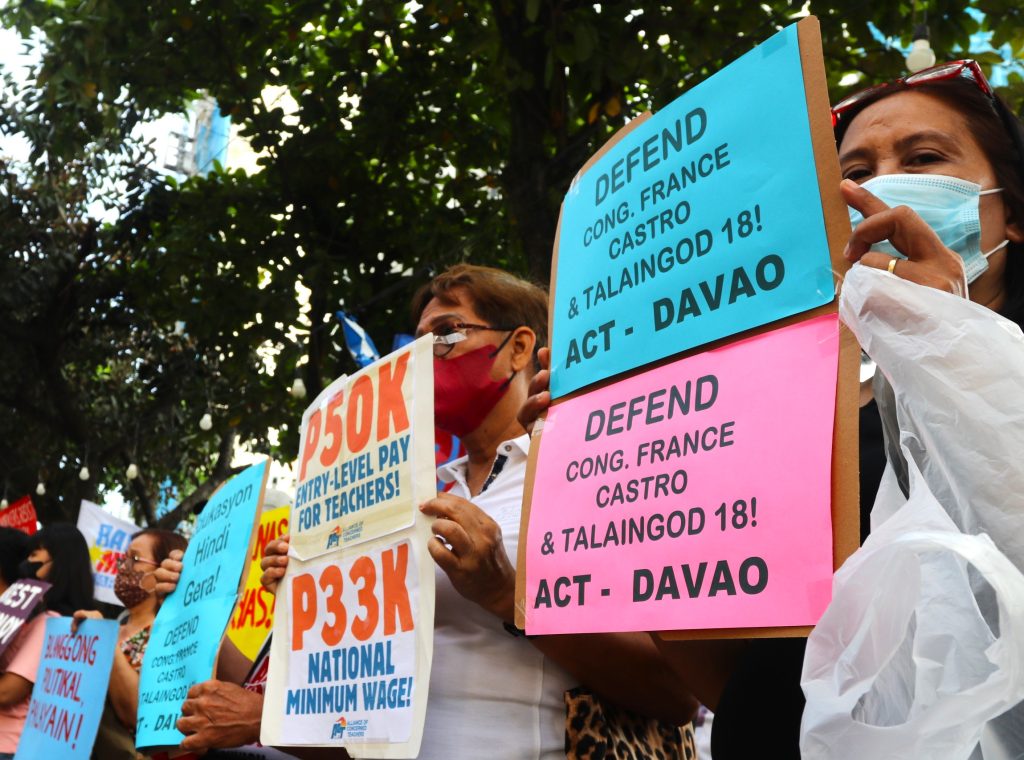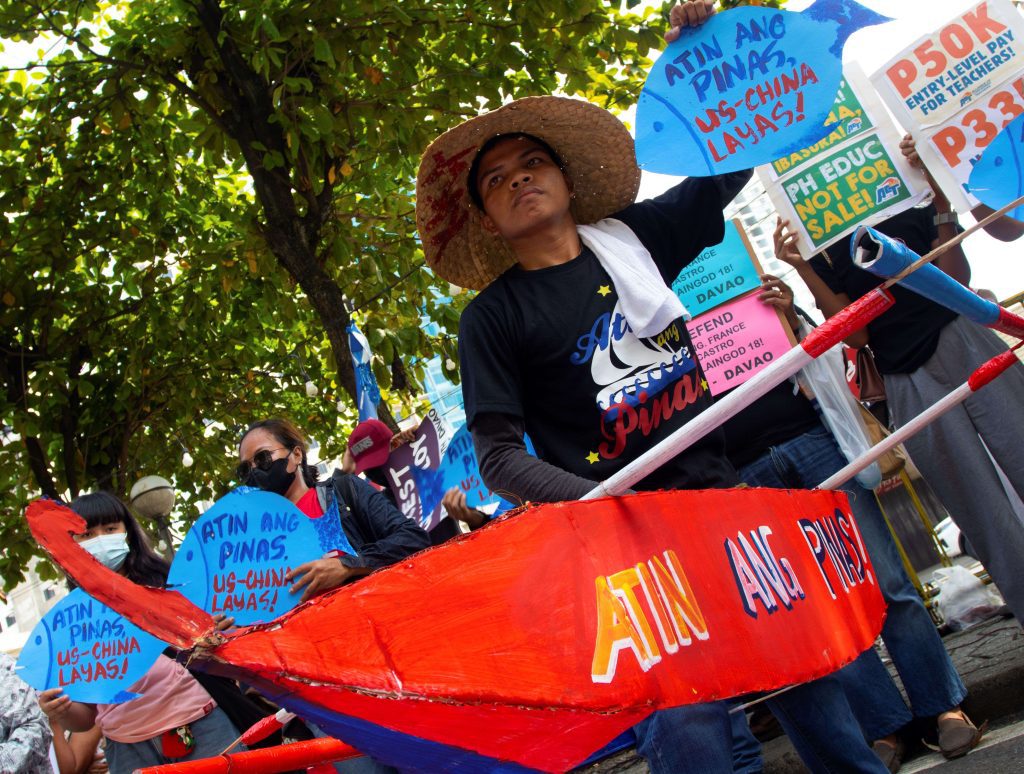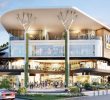
DAVAO CITY, Philippines – “The first question every Filipino wants to ask: What happened to the P20 per kilo of rice promised?”
Rauf Sissay, Southern Mindanao regional coordinator of Bayan Muna, raised this question in the activists’ version of the State of the Nation Address (SONA) held on Monday afternoon as President Ferdinand ‘Bongbong’ Marcos Jr. delivered his third SONA in the Batasang Pambansa.
Gathering at Freedom Park in Roxas Avenue, around 50 members of Bagong Alyansang Makabayan, Kilusang Mayo Uno, Anakbayan, Gabriela, and various progressive groups raised issues such as the need for increased living wages, upholding democratic rights, and other issues.
‘Nasan ang P20 na bigas?’
The rally served as a platform for the organizations to share the plight of the working class in Davao as they challenged the Marcos Jr. administration to address their grievances.
Sissay spoke of the core issue that everyone had in mind: the price of rice which has rose to nearly 60 pesos per kilo. Marcos Jr. vowed in his 2022 campaign to lower the price to 20 pesos.
Marcos Jr. started his SONA with the same issue, saying government data would not matter to Filipinos who suffer from high prices of rice.
His administration has cut tariffs on rice imports and offered rice at lower rates but only to members of the government’s 4Ps program. But the current market price of rice remains significantly higher, averaging around ₱40 per kilo.
Poverty under Bagong Pilipinas
“The Filipino people have witnessed deteriorating economic conditions in the country. In the Davao region alone, the minimum wage is a meager 462 pesos, far too low to meet the 1,200 daily family living wage,” Sissay added.
Sissay delivered a more accurate picture of the poor in Davao City. Citing statistics from the Department of Social Welfare and Development-Field Office Davao, its Listahan survey showed that 36% of Davao’s households rated themselves poor. That is 333,513 households out of the 903,267 consider themselves poor.
The self-rated poverty in Mindanao is much higher at 71 percent.

Larry Argilles, spokesperson of the transport group Transmision Piston Davao, lambasted the government’s implementation of the Public Utility Vehicle Modernization Program (PUVMP) calling it ‘anti-poor’ for phasing out public jeepneys that affected around 6,000 drivers in the city.
Both the national and Davao City government pushed for the implementation of public transport modernization while promising financial assistance to disenfranchised drivers, which the group said is not what they wanted.
Argilles said the modernization plan only favors groups and big businesses that are financially stable, making drivers and lower-income operators unable to apply for this new franchise.
With the soaring prices of fuel and basic goods, low-income families like Argilles feel nothing has changed.
“In this Marcos Jr. government, we also feel the same as we did under Duterte. We work hard like carabaos every day just to survive, but they make policies that slowly kill the poor. There is no place for us under the Bagong Pilipinas,” the jeepney driver leader said in Cebuano.
Marcos Jr. bannered the Bagong Pilipinas slogan last year of economic growth. Political analysts and the Makabayan coalition, however, point out the lack of specifics in Marcos Jr.’s SONA on how to implement economic targets.
Progressive groups reiterate their long-standing demand for Congress to pass the new national minimum wage law that would standardize wage levels across all regions. They criticized the current regional wage-setting system, which they claim perpetuates wage inequality and leaves many workers earning below the living wage.
Human rights
Human rights continue to be an issue raised by activist groups.
Rose Hayahay of Gabriela Southern Mindanao points out the case of the Talaingod 18, the collective of Lumad school teachers, ACT Teachers Party-list Representative France Castro, and ex-Bayan Muna Rep. Satur Ocampo who were found guilty last week by the Tagum City court for “child abuse” while rescuing distressed students during a solidarity mission in Talaingod in 2018.
Cases of harassment of labor leaders in Davao, and the abduction of Kilusang Mayo Uno organizer William Lariosa early this year in Bukidnon, show that red-tagging of activists and government critics persists under Marcos Jr’s administration.
“Even with the new leadership, the same attacks on our rights from Duterte’s fascist postures to Marco, there’s no difference,” Hayahay said.

The groups call for the disbandment of the National Task Force to End Local Communist Armed Conflict (NTF-ELCAC) that has stifled democratic rights of the people to organize and raise concerns to the government.
They also urged decisive action on the human rights cases filed against former President Rodrigo Duterte for his war on drugs campaign, and the arrest of the controversial fugitive evangelist Apollo Quiboloy over trafficking, child and sexual abuses.
The Kabataan Partylist also raised calls for a comprehensive education reform, citing the low performance of students as a sign that public education is failing the youth and jeopardizing their future.

AnakBayan also lambasted Marcos Jr’s promotion of the Enhanced Defense Cooperation Agreement (EDCA) with the United States in positioning for the West Philippine Sea (WPS) against China’s maritime vessels that had bullied Philippine Navy and fisherfolk.
“We don’t need US military bases in the country as they do not address the hunger of the Filipino people. We don’t need the warmongering of the US and China as it does not address the landlessness… We don’t need US-made advanced war machines as they do not solve the education crisis,” Anakbayan’s Beverly Gofredo said.
The group said an independent foreign policy should be asserted over sovereignty of the WPS which has been awarded to the Philippines through the arbitral ruling of UNCLOS. (davaotoday.com)
davao city, Marcos Jr., philippines, SONA









